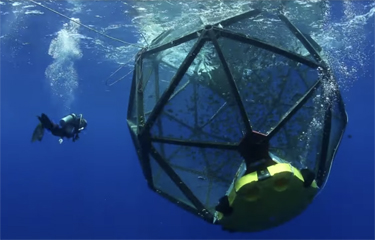A federal appeals court has struck down plans to open the Gulf of Mexico’s federal waters to fish farming, creating mixed messages to the industry on exactly who will be managing the future of offshore aquaculture in the U.S.
On Monday, 3 August, the U.S. 5th Circuit Court of Appeals in New Orleans blocked recent federal rules that would have allowed large-scale industrial aquaculture operations in offshore waters for the first time, upholding a 2018 federal ruling that the National Oceanic and Atmospheric Administration (NOAA) is not permitted the authority to regulate offshore aquaculture under existing national fisheries laws.
The ruling contrasts an executive order on U.S. seafood growth, signed by U.S. President Donald Trump earlier this year, that included a mandate to expand the nation’s aquaculture operations. The state of Florida has already made moves under that order to become a leader in U.S. aquaculture by submitting an application to designate federal waters off the state’s coast as a marine aquaculture opportunity area. The state is also home to Velella Epsilon, a proposed project of Ocean Era, a Hawaii-based an open-ocean mariculture start-up formerly known as Kampachi Farms. The project would farm 20,000 almaco jack, a fish native to the Gulf of Mexico, in one net-pen 45 miles south west of Sarasota, Florida.
George Kimbrell, legal director of the Center for Food Safety – one of nine plaintiff organizations in the case – called the decision a “landmark victory [for] protecting our oceans and fishing communities."
“Allowing net-pen aquaculture and its environmental harms in the Gulf of Mexico is a grave threat, and the court properly held the government cannot do so without new and proper congressional authority,” he said. “Aquaculture farms cannot be shoehorned under existing law never intended for that purpose."
"Today's decision makes clear what we have said all along: Congress never intended for the federal government to allow massive factory fish farms in federal waters," Wenonah Hauter, executive director of Food and Water Watch, wrote in a news release.
In the ruling, the appellate judges charge Congress with adapting the existing legislature so that proper permitting of offshore aquaculture exists before such facilities could be approved.
“We consider whether a federal agency may create an ‘aquaculture,’ or fish farming, regime in the Gulf of Mexico pursuant to the Magnuson Stevens Fishery Conservation and Management Act of 1976 … the answer is no,” reads the decision. “The Act neither says nor suggests that the agency may regulate aquaculture. The agency interprets this silence as an invitation, but our precedent says the opposite: Congress does not delegate authority merely by not withholding it.”
“That is a slippery basis for empowering an agency to create an entire industry the statute does not even mention,” the decision continues. “We will not bite. If anyone is to expand the 40-year-old Magnuson-Stevens Act to reach aquaculture for the first time, it must be Congress.”
The majority opinion was written by Judge Kyle Duncan, a Trump nominee to the court, and joined by Judge Patrick Higginbotham, an appointee of former President Ronald Reagan.
Judge Stephen Higginson, an appointee of President Barack Obama, wrote in his dissent that Congress had delegated the power to manage and conserve fish to the National Marine Fisheries Service, and also pointed out ambiguity in the Magnuson-Stevens Act when it comes to “modern methods of rearing and harvesting fish in and from enclosed offshore waters.”
“Congress’s clear purpose to conserve and maintain our nation’s offshore fisheries, coupled with its explicit and capacious grant of authority over ‘all fish,’ lead me to conclude that modern aquaculture methods of fishing fit vitally in, not out of, the Magnuson Act regime,” Higginson wrote. “Alternatively, I would find that the statutory grant of authority is at least open on that point, obliging us to defer to the NMFS’s reasonable interpretation before invalidating over a decade of state and federal officials’ efforts, along with private experts, to draft a ‘fishery management’ plan that reconciles myriad commercial, environmental, and recreational interests.”
While the future of offshore aquaculture is up in the air with this decision, Neil Sims, founder and CEO of Ocean Era, told the Naples Daily News that the ruling won’t hinder the progress of the Velella Epsilon project, which is being managed by the Environmental Protection Agency. The company is waiting to hear back from the EPA on a potential permit to discharge into the Gulf of Mexico.
"It’s the way the world should be. We should have rational management regulations in place. We in the industry are asking for that," Sims said of the court ruling. "We want to see this industry well managed and coordinated in its development."
Photo courtesy of Ocean Era







